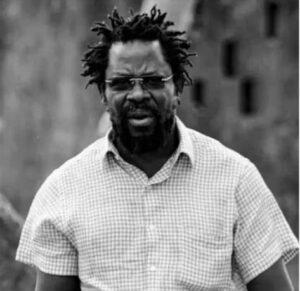Dele Farotimi, a respected human rights lawyer and staunch advocate for justice, is at the center of a growing controversy in Nigeria. His imprisonment, widely viewed as retaliation for his unwavering commitment to truth, has drawn sharp criticism from former Vice President Atiku Abubakar and sparked national outrage.
Farotimi’s arrest under a so-called cyberbullying law—allegedly non-existent in Ekiti State—highlights the concerning trend of using legal frameworks to suppress dissent and intimidate vocal critics of the government.
Truth Silenced: A Growing Climate of Repression
In a statement marking International Human Rights Day, Atiku condemned Farotimi’s detention as a gross violation of fundamental rights. He described it as emblematic of a broader climate of impunity and repression that threatens Nigeria’s democratic principles.
“Dele Farotimi’s only offense lies in his unwavering commitment to uncovering truths that certain powers would prefer to keep hidden,” Atiku remarked.
His sentiments echo the fears of many Nigerians who view the misuse of laws as a tool to silence opposition voices and curb freedom of expression.
The Weaponization of Laws
Farotimi’s case has ignited widespread condemnation from civil society organizations and activists, who accuse the government of exploiting ambiguous legal provisions to stifle dissent. Atiku underscored this issue, pointing to the alleged misuse of the cyberbullying law as a troubling example of the weaponization of legislation against those who dare to challenge the status quo.
“Such practices erode the fabric of our democracy and embolden the climate of impunity,” Atiku warned. He further emphasized the need for Nigerian leaders to respect the constitutional rights of citizens, a principle they swore to uphold.
The Call for Justice and Accountability
As outrage over Farotimi’s detention grows, activists are calling on Nigeria’s leaders to ensure the protection of basic freedoms and the rule of law. Atiku’s plea for accountability on International Human Rights Day served as a poignant reminder of the sacred duty of leadership.
“Let us remind our leaders at all levels of the sacred oaths they took to protect and uphold the constitutionally enshrined rights of the people,” Atiku urged. His call to action resonates with a populace increasingly wary of the nation’s human rights record.
Truth Silenced Nigeria: A Democracy Under Threat?
Dele Farotimi’s plight is a stark reflection of the dangers facing democracy in Nigeria. As civil society continues to rally for his release, the spotlight on the nation’s human rights practices grows brighter.
Whether Nigeria’s leaders choose to address these troubling trends or continue down a path of repression will define the future of its democratic principles. For now, the fight for justice and the defense of free expression remain critical to preserving the integrity of the nation.
Stay informed with the latest on justice and advocacy at AJU2kobo.com.



